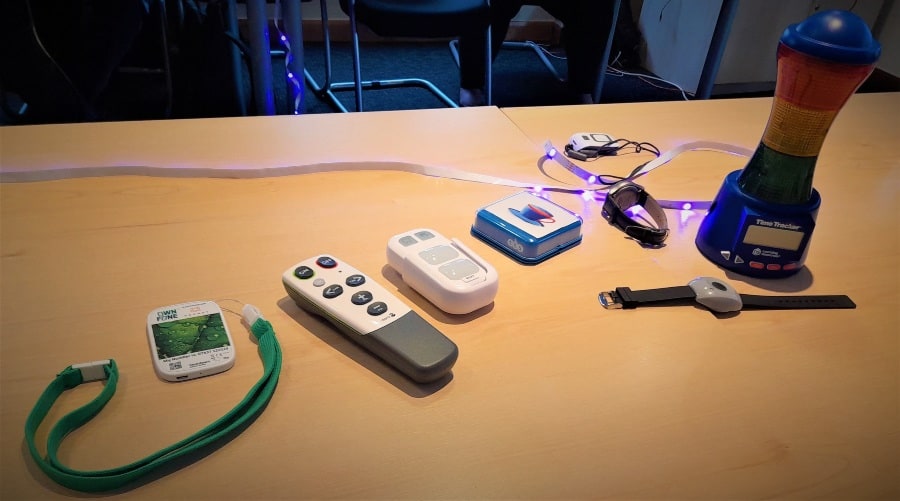Hft champions person-centred support through personalised technology
Learning disability charity Hft is aiming to give adults with learning disabilities greater control over their lives by championing person-centred support through personalised technology (PT).
The charity hopes to create a pivotal digital solution for the future of national social care planning and policy using assistive technology that is tailored to an individual’s needs.
According to Hft, adults with learning disabilities are often neglected from key conversations about how they want to live their lives. However, the charity expects that a person-centred approach to care will reframe and change the approach.
Vincent Scaife, PT Co-ordinator at Hft, explains: “In the UK we have a model of care which is ‘just in case’ – it’s focused more on hours than on outcomes.
“If there’s an issue, the local authority often throws hours at it. But we have to do things differently. We have to change the model of care within social care, and technology can help to enable us to do that.
“PT gives us the tools, space and control to free up our number one resource – our care and support colleagues – to spend more quality time with the people we support.”
The Care Quality Commission (CQC) recognises person-centred care as beneficial for people with learning disabilities; shaping the care and support needed by an individual, listening to their likes and preferences.
The CQC is already encouraging the sector to use technology in a person-centred way to support greater dignity and increased health and well-being in care. In 2022 alone, technology has featured in six different influential pieces of legislative proposals including the Health and Care Act 2022 and the People at the Heart of Care whitepaper.
However, PT is not yet without its barriers; resistance, lack of knowledge around different technologies, perceived complexity and cost challenges are all ongoing barriers to the implementation of person-centred assistive technology, says Hft.
Albeit, Vincent welcomes a conversation around these challenges. He added: “We actually love it when people come to us with problems we’ve not yet been able to solve, because it means we can go into research and development on that issue.”
Hft’s focus on training staff and strengthening the experience of working within services enables the charity to understand the day-to-day challenges people with learning disabilities face. In turn, it is well-placed to help identify potential opportunities for bringing in technologies as well as addressing existing issues.
This person-centred training is beneficial to overcoming the aforementioned barriers – strengthening independence, choice and control, communication, risk management, and health and well-being.
Daisy Blacklock, Internal Communications Officer at Hft, recently attended one of Hft’s PT training sessions. She added: “During the training, we were asked: What piece of technology could you not live without? This exercise instantly hammered home that technology doesn’t have to be complicated or high-tech to make a difference in someone’s life,”.
Hft uses a variety of technologies to better the lives of the people they support and assist with everyday tasks.
Personalised Technology Co-ordinator, Valerie Healy, says: “I’m an avid tea drinker, so I think it’s such a basic thing, isn’t it, being able to ask for a cup of tea? No wonder people get frustrated when they’re unable to do so, so these simple solutions can really make the difference.”
Hft’s use of ‘talking tiles’ enable people who are non-verbal to communicate their needs through recorded speech with minimal effort. These tiles include an option which, when pressed, says: ‘I would like a cup of tea’.
There are also more high-tech options such as the one-cup kettle that gives people the independence of being able to easily and safely make a cup of tea or coffee themselves by removing the need to lift and pour a kettle of boiling water.
Vincent Scaife concludes: “The bottom line is, we want to make sure technology meets the needs of the individual, not vice-versa. It’s about getting people to think differently when it comes to delivering care and support.”
Hft is now offering a number of training courses from bespoke workshops to accredited qualifications, all using practical examples and real-life case studies to raise awareness and better education around the implementation of PT.
Recently, Hft and Care England announced its partnership to deliver Sector Pulse Check 2022, a report analysing the impact of challenges facing the adult social care sector with a focus on financial health.



